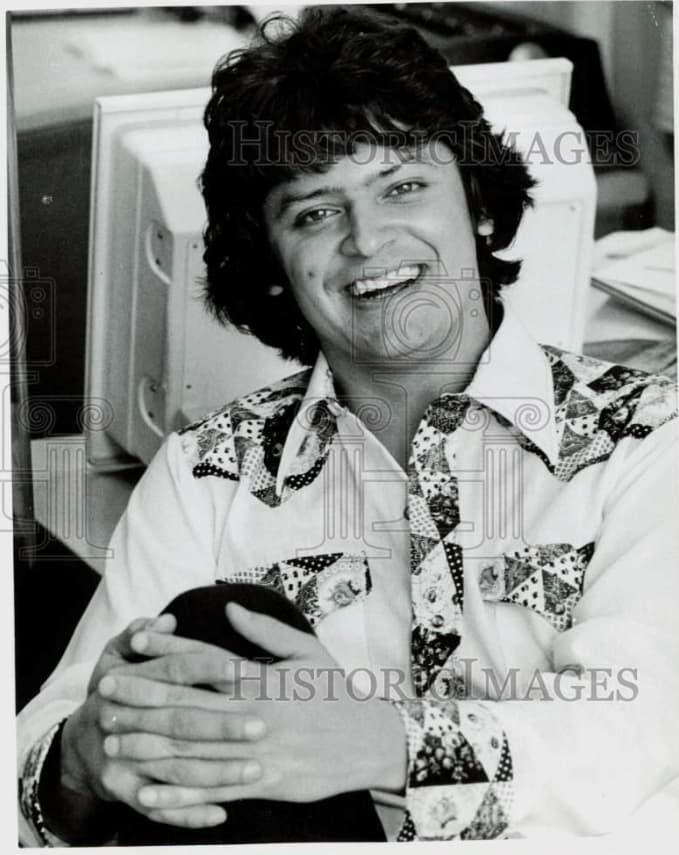
A Heartbreak Disguised as Merriment: Johnny Rodriguez’s Enduring Tale of Self-Deception in “Foolin'”
Ah, the gentle strum of a guitar, the lonesome cry in a voice – these are the hallmarks of a country ballad that speaks directly to the heart. Today, we turn our gaze back to 1979, a year that gifted us with Johnny Rodriguez‘s poignant tune, “Foolin'”. This wasn’t just another song climbing the charts; it was a tender exploration of the human condition, a candid look at the games we play with ourselves when love slips through our fingers. Peaking at number seven on the Billboard Hot Country Singles chart, “Foolin'” resonated deeply with audiences, its simple yet profound message echoing in the hearts of those who knew the sting of lost love and the flimsy comfort of denial.
Johnny Rodriguez, with his smooth tenor and authentic delivery, had already carved a significant niche in the country music landscape. Born in Sabinal, Texas, his journey from humble beginnings to country stardom was a testament to his raw talent and genuine connection with his music. By the late 70s, he had a string of hits under his belt, each one marked by his distinctive vocal style and the heartfelt narratives he so eloquently conveyed. “Foolin'”, appearing on his self-titled album “Johnny Rodriguez”, further solidified his reputation as a storyteller capable of capturing the nuances of everyday emotions.
The story behind “Foolin'” is one that many can relate to. It speaks of the aftermath of a relationship’s demise, the difficult period when one tries to mask the pain with a facade of normalcy. The lyrics paint a picture of someone attempting to convince not only the world but also themselves that they are unaffected by the absence of a loved one. The cheerful whistling, the forced smiles – these are all carefully constructed defenses against the ache within. We see a protagonist going through the motions of life, perhaps going out, interacting with others, but all the while, a deep void remains. The act of “foolin'” becomes a lonely performance, a desperate attempt to outrun the truth of a broken heart.
The beauty of “Foolin'” lies in its stark honesty. It doesn’t shy away from the vulnerability that comes with heartbreak. Instead, it gently exposes the internal conflict of someone who is not yet ready to confront their sorrow. The seemingly upbeat melody, juxtaposed with the underlying melancholy of the lyrics, creates a poignant tension that draws the listener in. It reminds us of those times in our own lives when we might have tried to put on a brave face, pretending that everything was alright when our world felt like it was crumbling.
Consider the imagery evoked in the song: the laughter that doesn’t quite reach the eyes, the casual conversations that feel hollow, the nights spent alone with only memories for company. These are universal experiences, painted with a country twang that makes them feel both personal and widely relatable. Johnny Rodriguez delivers these lines with a sincerity that makes you believe he has lived every word, or at least intimately understands the emotions they convey.
The enduring appeal of “Foolin'” lies in its timeless message. The complexities of love and loss, the defense mechanisms we employ to cope with pain – these are themes that resonate across generations. It serves as a gentle reminder that it’s okay to not be okay, that the process of healing often involves a period of pretending before we can truly face our feelings. The song doesn’t offer a quick fix or a neatly tied resolution; instead, it offers a moment of shared understanding, a comforting acknowledgment that we are not alone in our struggles with heartbreak.
So, as we listen to the familiar strains of “Foolin'”, let us not only appreciate Johnny Rodriguez‘s artistry but also reflect on the times we might have engaged in our own forms of “foolin’,” and perhaps find a measure of solace in the shared human experience of navigating the intricate landscape of the heart. It’s a song that whispers a gentle truth: that sometimes, the bravest thing we can do is to stop fooling ourselves and allow ourselves to feel.